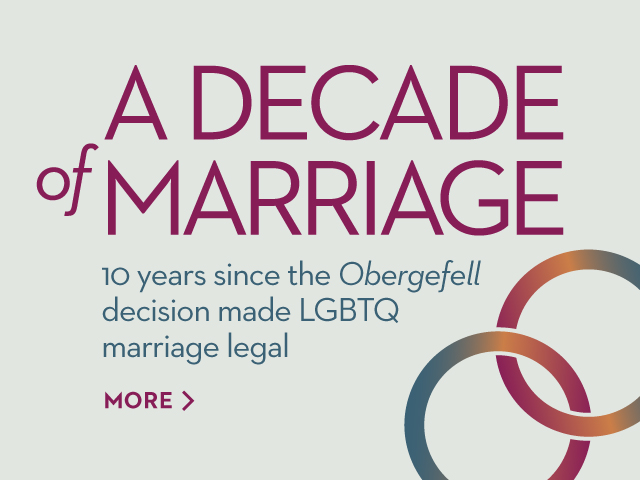On August 29, 2011, U.S. District Court Judge James Ware will hear arguments about whether to unseal the video recordings of the historic trial in Perry v. Brown, the federal court challenge to Proposition 8, the 2008 ballot measure that stripped the freedom to marry from same-sex couples in California. After a three-week trial in January 2010, now-retired Chief District Judge Vaughan Walker issued a decision in August 2010, holding that Prop 8 was based on anti-gay animus and blatantly violated the equality guarantees of the federal Constitution. That ruling has been on hold while the proponents of Prop 8 appeal Judge Walker’s ruling.
Since suffering a devastating loss at trial, the proponents of Prop 8 have fought to prevent the public from seeing the official video recording of the trial—even though the trial was open to the public and attended by hundreds of citizens and spectators. In a bold counter-move, the couples who filed the Perry litigation have asked the Court to unseal the video recording so that it can be made available to the public. True to form, the proponents opposed that request. Once again, they are seeking to hide the video recordings of a public trial about the constitutional rights of California’s citizens.
Why are the same people who spent tens of millions of dollars on a very public campaign attacking equality for LGBTQ people now fighting so hard to conceal those efforts? Because the proponents of Prop 8 have a lot to hide. They presented a case based on junk science and bigotry. When exposed to the rigors of the judicial process, their witnesses and experts withered on the stand, and their utter lack of credibility was apparent to all.
Meanwhile, the plaintiffs provided moving and compelling testimony about their families, as well as testimony from the nation’s leading scholarly experts on marriage, parenting, and child welfare. The proponents of Prop 8 don’t want even one more person to see their courtroom debacle, so they are fighting vigorously to conceal it from public view.
We hope—and have every reason to believe—that the Court will uphold the First Amendment, ensuring that future generations have access to this historic trial, and can witness first-hand the proponents’ failed efforts to perpetuate discrimination and hate. If nothing else, it is clear that the proponents need a history lesson about how democracies function—including the basic tenet that all citizens and the press have a presumed right of access to court proceedings and documents. Regardless of how the Court rules, the proponents’ effort to hide the court record speaks volumes about the weakness of their position—and the strength of ours.










